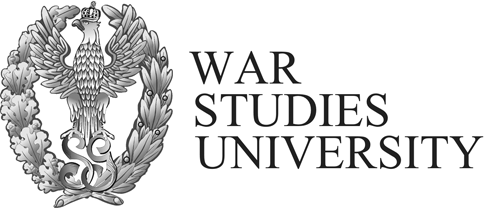Dorota Domalewska: In your latest book “The making of global international relations” (Acharya and Buzan 2019) you focus mainly on the development of international relations since the 19th century: colonialism, through two world wars, the Cold War and decolonisation to globalisation. You also discuss how the global international society (GIS) has emerged and evolved. You have made a very interesting claim that GIS is entering a deep and sustained transition. Could you explain what the direction of the change is and what it is characterised by?
Barry Buzan: GIS has been defined by the West for a couple of centuries. However, it may be argued that this period is coming to an end. We are quite radically entering a new phase in which the West is no longer going to be the completely dominant power centre behind international society. In some ways, we might look at this as a return to the world that once existed before modernity, global interdependence and the shrunken planet1. Before the 19th century, in particular before the 16th century, the world was fairly loosely connected. And yet, amongst those connections, the distribution of power was fairly equal. So China, India and the Islamic world were all centres of power in their own right.
We are now returning to something like that more equal world, but now with all of these centres of power closely connected and highly interdependent. This is a really big change. I now use the label ‘deep pluralism’ to describe this emerging world order (Acharya and Buzan, 2019). That is fairly straightforward to understand: this post-western international order is going to have a greater diffusion of wealth, power and cultural authority.
We can now see how China, India and the Islamic world are reclaiming their cultural status. They are not just reclaiming their wealth and power, they are also acquiring the cultural autonomy they had lost. The western world is, therefore, losing its claim to be the only civilisation. That, in a sense, particularly in its American version, was the idea that eventually everyone was to become like America. This Star Trek world [in which America has “fulfilled its liberal dream of remaking the whole world in its own image” (Buzan, 2010, p. 176)] is in an advanced stage of collapse. It is just no longer credible. We are heading into quite a different world. The emerging GIS will display a deeply pluralist structure, which in the English School sense means that it is a fairly divided world. It might entertain ideas of coexistence but it is a world that is much more defined by its differences than by its similarities. Traditionally, that would have suggested a very standard, traditional style security agenda of conflicting and competing states.
The world is now a shrunken place and everybody is interdependent in all kinds of ways. There is an agenda of shared fates that might or might not become a security agenda. Now obviously, the pandemic that we are in is a very good example of shared fate. We are all in this together whether we like it or not and we are all trapped. And this is for me but one of such shared fates. Others include climate change, the sea level rising, trying to keep the global economy going, and rocks from space. These things at the moment are mostly not on the security agenda although they are certainly being discussed in various ways. But they could be. So this whole business is very vulnerable just in the way that the sudden appearance of COVID-19 this year has really changed everything. It has certainly redefined the landscape. Any of these shared fate issues could do the same, but until something happens, we cannot know which events will get on the security agenda or not.
Domalewska: The traditional security agenda concerns traditional kinds of military political rivalry. In your publications you discuss the emerging agenda of common security of shared fates. Can these two types be mixed? When the elements of shared fate mix with the traditional military political rivalry such as cybersecurity, nuclear proliferation or terrorism and common threats are turned against another country.
Buzan: A shared fate means common threats such as COVID-19 and climate change. An intrinsic feature of shared fates is that there is no individual escape from them. COVID- 19 seems to be one, and so would global warming or a big rock from space heading towards the earth. Something like terrorism, or nuclear proliferation, or migration might or might not work as a shared fate. They are shared in one sense but they are also weaponisable in the traditional security way. When Europe was dealing with the 2015 migration crisis, some people in Europe were saying that Russians were trying to stir up the Middle East in order to put huge pressure on Europe. In other words, the argument was that the Russians were trying to weaponise migration. It does not matter whether or not it was true. It could have been true, and it was certainly a securitisable piece of rhetoric. The migration crisis is either a shared fate because it affects everybody or you could see it as something which could be compartmentalised, weaponised and used in the context of a traditional security agenda. It could, therefore, be seen as a non-traditional way of pursuing a very traditional great power rivalry type agenda: Russia wants to weaken Europe and the European Union and that would be a very good way to do it.
Some of the shared fates have that divisive quality. It seems to me that the response to COVID-19 is becoming part of moving towards constructing something like a cold war between China and the West. So we are going more in that weaponising direction. We cannot get away from shared diseases, and we cannot get away from climate change, or the sea level rising but there is room for choice about how we respond to them.
Domalewska: How do you see the traditional security agenda changing in the face of the COVID-19?
Buzan: I would have to see this through securitisation theory obviously. This crisis is still a work in progress at the moment. There is a kind of competing rhetoric around this issue. On the one hand, there are those who are saying this is definitely a shared fate and we need to pull together, we need to cooperate, we need to have institutions to deal with this kind of stuff. And there are those who are saying that if we have a vaccine, it is all ours, to hell with you. And there are attempts from the Trump administration most obviously to say: China did this, maybe it came out of their labs, maybe it was intentional. So we need to add this kind of traditional securitising rhetoric to the general bonfire of great power rivalries and this is a dominant trend at the moment.
Acharya and I (Acharya and Buzan, 2019) discussed deep pluralism. But within pluralism there are choices about what it looks like and we suggested that deep pluralism could either be contested in the sense of great power rivalries continuing in a fairly traditional way2 albeit with new means; or it could be, to borrow a phrase from John Ruggie, embedded3 in the sense that great powers might accept this kind of pluralism as a good thing, even a desirable thing, and learn to tolerate each other, and possibly even like and admire each other. In other words, to respect differences. But at the moment, it seems we are heading towards contested deep pluralism.
Domalewska: You have argued that the great powers are increasingly inward looking and “more internally referenced than shaped by interactions with others” (Acharya and Buzan, 2019, p. 271). Furthermore, not only are they preoccupied with domestic issues but also fall under the public opinion’s influence. Could you please elaborate on this?
Buzan: I use the term autistic to describe this. It is a controversial term that refers to the fact that the behaviour of great powers is almost entirely driven by domestic politics without regard for the rest of the world. Russia and China have been the clearest examples of this. Russia does not basically seem to care about the opinion of those who constitute international society. The Chinese had cared until a few years ago, but they no longer do. They think they are strong enough to ignore the rest of the world and so they just carry on. Xi Jinping has a very clear domestic agenda. He wants to increase the control of the communist power over society, to create, in a sense, a more totalitarian state, and, in so doing hope to keep themselves in power forever. This is a formula that is necessary for keeping the communist party in power. Hence, they do not basically care about the consequences of this anywhere else or how they are perceived by other states and societies that constitute international society. They believe they can deal with all of that. So China is autistic in that sense and its behaviour does not seem to be responsive to the rest of the world. It does not try to build trust, its policy changes all the time, it bullies on the one hand and talks about peace and harmony on the other.
The United States is also increasingly inward-looking. The rhetoric of the Trump administration at the moment is focused on the November election and Trump clearly feels the same way as Xi Jinping. He does not care at all about the consequences of this.
He does not care about building trust, he does not care whether people like what he does or not. He is doing it all almost entirely for domestic reasons.
Coming closer to home, I can look at Britain and say that the disastrous decision to leave the European Union is entirely a consequence of British domestic politics. Most of the people who voted for Brexit do not care about the European Union but they did not like what the government was doing in London. It is London they did not like. And they voted to exit the EU as a way of addressing domestic political issues. So Britain has cut its legs off and it will lead to a diminished economy and a diminished global political position.
It is almost always true that domestic politics trumps international politics. It is a kind of standard practice: the understandable nature of the business. But when that practice becomes very extreme, we get into real difficulties because if you imagine a room full of autistic people not paying any attention to each other, not caring about each other, seeing each other as threatening, it is not a very nice place to be. You would expect conflict, you would expect prickly behaviour of the kind you get in Washington, Beijing and Moscow at the moment. It is a place where trust and awareness of the other is almost completely absent, and the ability to put yourself into somebody else’s shoes and see how they view you is almost completely absent. It is not a very good way of doing international politics. It implies that there will be a lot of friction, possibly some conflict and relatively little cooperation. Domestic politics goes on regardless of the international consequences, regardless of whether it gets into hot water internationally. So sadly, we seem to be in a place where it is the normal pattern of behaviour.
Domalewska: The concept of the global international society is the major concept of the English School of international relations. Where do you see the research of the English school heading?
Buzan: It is unfolding in all kinds of interesting ways. It has certainly focused more attention on the question of primary institutions4 of international society, such as sovereignty, nationalism, human equality and other things, and studying how those come and go. For example, Robert Falkner and I (Falkner and Buzan, 2017) published a piece on the rise of environmental stewardship as a new primary institution of international society.
A large body of research is trying to understand the relationship between the primary institutions and secondary institutions (intergovernmental organizations, regimes). The traditional English school rather neglected secondary institutions but there is a good case to be made that those institutions reflect, express and reproduce the deeper primary ones. Furthermore, there is a considerable amount of work going on to pluralise the English school. Too many of our theories were based too much on Western history; therefore, there is now an attempt to recover other kinds of international societies and to look at history from a more global perspective. The Chinese have done a lot of good research on their own history and, in this regard, more research is needed. I mean there is a very common Eurocentric myth that the West started rising in a very big way and began dominating the world from the early 16th century. This is just not true. It is true in the Americas. But it certainly is not true in Africa nor in Asia where there was a kind of stand-off between the Europeans and the locals for 300 years. And the Japanese, the Chinese and the African kingdoms were all perfectly able to defend themselves against the Europeans and to deal with them as more or less equals. Some Europeans even had to deal with China and Japan as inferiors or subordinates. So, more work will need to be done to recover that period which tends to have been lost in the general Eurocentric claims that Europeans have been running the world for 500 years. We have been running the world for 200 years, but not 500 years.
One of the reasons why this research is important goes back to the fact that we are now moving to a post-Western world order where post-colonial resentment plays an important role. When I say that deep pluralism is about the diffusion of wealth, power and cultural authority, it is mostly about the diffusion of wealth, power and cultural authority to people who were colonised or generally beaten around by Europeans. Those who were colonised remember this very well and resent it. They resent the humiliation, they resent the abuse, they resent the exploitation, they resent the racism, and they remember it. You do not have to spend very long in China to hear people talking endlessly about the ‘century of humiliation’ which is reproduced all the time in the Chinese media and government announcements. They want people to remember this, and they spend a lot of money making sure that they do. And the Global South, and for the purposes of this argument I include China, all of those who were at the wrong end of colonialism, still remember very clearly and feel very strongly about all the bad things that happened to them. Whereas in the West and Japan, almost everybody has forgotten about that to the extent that when Brits remember the Empire, they often think pretty well of it and that it was a good time in British history when we were number one and ruled the world, and we were not the worst Empire and did some good things and so on. We did some terrible things too, but on the whole nobody much remembers that. So there is a huge memory disjuncture that is going to play quite strongly, I think, into the politics of the next decade or two or three, in other words into this deep pluralist world. The side which still recalls and resents what happened will increasingly have the power and the wealth and the cultural authority to amplify it whilst, on the other hand, we have a declining West that somehow does not bother to remember this and does not want to talk about it and just wants to move on. That is not going to work. It worked while the West was dominant but it is not going to work now and the West needs to wake up to this because it is going to be a very uncomfortable run. Perhaps the Black Lives Matter movement, and the public support for it in the West, is a start in the right direction.
Domalewska: Thank you very much for the interview.
Barry Buzan is Emeritus Professor of International Relations at the London School of Economics; honorary professor at Copenhagen, Jilin, and China Foreign Affairs Universities; a Senior Fellow at LSE Ideas, and a Fellow of the British Academy. He was previously Project Director at the Copenhagen Peace Research Institute (COPRI) from 1988 to 2002, Chairman of the British International Studies Association from 1988 to 1990, and founding Secretary of the International Studies Coordinating Committee from 1994 to 1998. He was also editor of the European Journal of International Relations from 2004 to 2008. He is a leading scholar on the Copenhagen School of Security Studies and the English School of International Relations. He has written, co-authored or edited over twenty-five books, written or co-authored nearly one hundred and fifty articles and chapters, and lectured, broadcast or presented papers in over twenty countries. His most important works include: The making of Global International Relations: Origins and evolution of IR at its centenary (2019, with Amitav Acharya), The global transformation: History, modernity and the making of International Relations (2015, with George Lawson), An introduction to the English School of International Relations: The societal approach (2014), The evolution of International Security Studies (2009, with Lene Hansen), Security: A new framework for analysis (1997, with Ole Waever and Jaap de Wilde), and People, states and fear: The national security problem in International Relations (1983).




